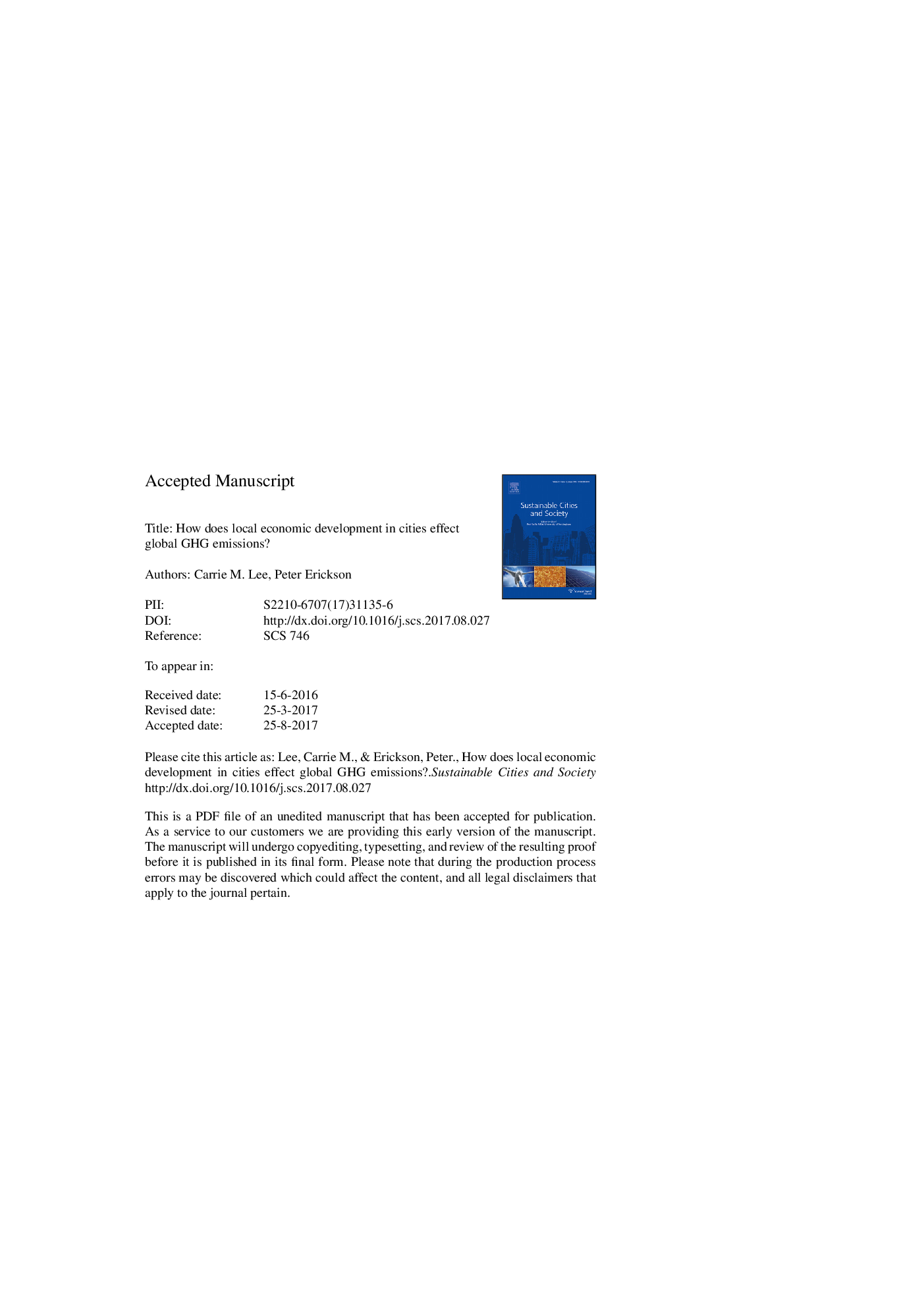ترجمه فارسی عنوان مقاله
چگونه توسعه اقتصادی محلی در شهرها بر انتشار گازهای گلخانه ای جهانی اثر می گذارد؟
عنوان انگلیسی
How does local economic development in cities affect global GHG emissions?
| کد مقاله | سال انتشار | تعداد صفحات مقاله انگلیسی |
|---|---|---|
| 91420 | 2017 | 26 صفحه PDF |
منبع

Publisher : Elsevier - Science Direct (الزویر - ساینس دایرکت)
Journal : Sustainable Cities and Society, Volume 35, November 2017, Pages 626-636
ترجمه کلمات کلیدی
توسعه اقتصادی محلی، شهر کوچک کربن، فرم شهری،
کلمات کلیدی انگلیسی
Local economic development; Low-carbon city; Urban form;

